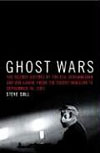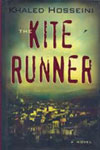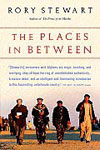On Tuesday evening, President Obama spoke to an audience that included over 4,000 West Point cadets—the future officer corps of the US Army—and announced his intentions to dispatch 30,000 more soldiers to Afghanistan. This rapid escalation in deployments will bring the number of American troops serving there to nearly 100,000. In the days leading up to the President’s speech, and certainly since he has delivered it, speculation regarding the likely success (or lack thereof) of this measure has become a prominent topic of discussion in the media.
In the commentary and coverage, one can’t help but notice a lack of discussion about the other side: the people, history, and sociopolitical context of modern Afghanistan. Obama’s decision is a strategic move or a colossal mistake, but either way, this is a subject that our society and our elected officials cannot afford to ignore. What follows is a short list of titles—some nonfiction, some fiction—that each offer a distinct insight into a nation whose future will have a very direct influence on our own.
Ghost Wars, Steve Coll, Penguin, 2004.
A Pulitzer Prize-winning journalist, Coll lays out a sweeping historical narrative of events in Afghanistan from the Soviet invasion and subsequent CIA involvement in 1979 to the events leading up to September 11, 2001. Exhausting in its detail and comprehensive in its scope—the paperback edition has over 100 pages of footnotes and citations alone—the book presents a meticulous and thorough evaluation of the historical forces which led to not only the rise of al-Qaeda in Afghanistan but also to the dismantling of a state in one of the most turbulent regions of the world. Filled with first-person accounts and thoughtful commentary, Coll’s work should be required reading for anyone trying to understand Afghanistan’s place in the world of 2009.
Taliban, Ahmed Rashid, Yale University Press, 2000.
Pakistani journalist Ahmed Rashid details the rise of the Taliban in a work that has been translated into over 20 languages. A correspondent who has covered affairs in Afghanistan and Central Asia for over 30 years, his straightforward narrative and insightful synthesis of the historical and political events which allowed the Taliban to flourish in pre-9/11 Afghanistan are no less relevant today. Rashid is also the author of Descent into Chaos: The United States and the Failure of Nation Building in Pakistan, Afghanistan, and Central Asia.
The Kite Runner, Khaled Hosseini, Riverhead Books, 2003.
Hosseini’s debut novel spent weeks atop the New York Times bestseller list, in part because of it is an unforgettable story of such universal themes as love, guilt, shame, and redemption. However, the novel is also very much the story of Afghanistan. Through the stories of its characters, The Kite Runner encompasses the destruction of a society that occurred following the Soviet invasion, the rise of the warlords who led to the Taliban, and the immigrant experience of those who left their war-torn home as refugees. Hosseini’s second novel, A Thousand Splendid Suns, also puts a human face on life in Afghanistan under the Taliban.
The Places in Between, Rory Stewart, Harvest Books, 2006.
British diplomat and current professor at Harvard’s Kennedy School of Government, Rory Stewart’s first book details his experiences walking across Afghanistan, from Herat to Kabul, in 2002. A travel narrative that leaves the reader continually wondering, “Why, exactly?”, Stewart’s account of his journey never truly answers this question. This makes for a frustrating read since at times the author seems to care more about what he is doing than why, or how, or for what purpose. However, Stewart’s remarkable exposure to some of the most geographically inhospitable places in the world as well as some of the most geopolitically unstable can’t help but inspire a certain amount of awe for his moxie. Just seven months after the Taliban destroyed the historic Buddhas of Bamyan, Stewart was there. A pale-skinned, light-haired Scot, on foot. Alone. Even without fully understanding his motivation, the book is a fascinating read.
The Bookseller of Kabul, Asne Seierstad, Back Bay Books, 2004.
In 2001, after the fall of the Taliban, Norwegian journalist Asne Seierstad met a bookseller in Kabul. Eventually the two agreed that Seierstad would live with the bookseller’s family for several months and write about her experiences. The book that developed is engrossing for the way in which it presents a portrait of a middle-class, urban family within the cultural context of modern Afghanistan. The book is riveting in its contradictions, even as it is also horrifying for the light it sheds on the complex family and social structures which continue to make the women of Afghanistan some of the most oppressed in the world. Ironically, after the book’s publication and international success, the bookseller subsequently sued Seierstad in a Norwegian court for libel, perhaps underscoring the irony of the sometimes liberal yet also deeply conservative influences in post-Taliban Afghanistan.











